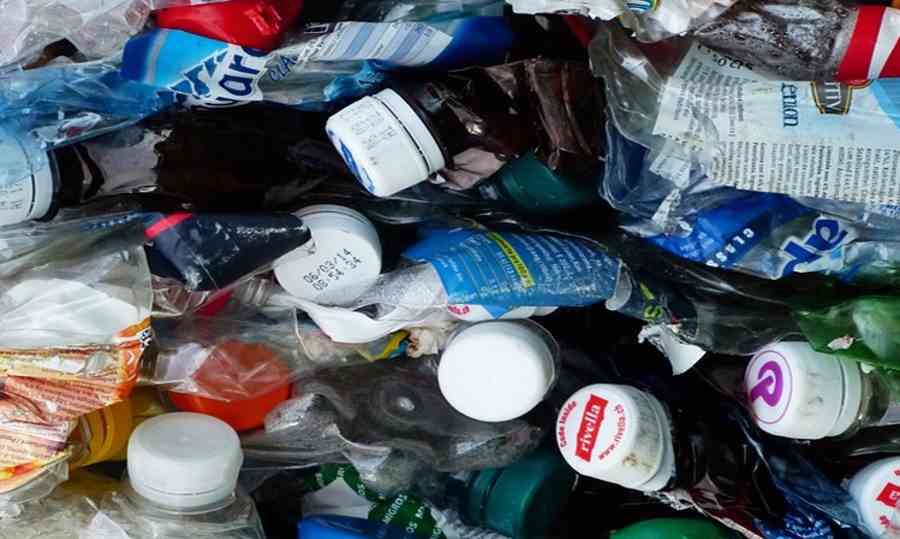Scientists have, by accident, improved the enzyme that breaks down plastic
British researchers have succeeded by accident in improving a naturally occurring enzyme, PETase, which perfectly breaks down plastic waste. It could help solve the global plastic pollution crisis.
PET – Poly(ethylene terephthalate) is a polymer used on a massive scale to make beverage bottlesow. It takes hundreds of years to decompose in the environment. About one million plastic bottles are sold every minute in the world. Most of them end up in landfills. Much gets into the oceanoin, where they form huge islands of garbage and pollute even the remotest regions. In doing so, they are harming marine organisms and potentially humans, ktoers consume it.
For years, the search has been on for an effective method of dealing with the problem of waste that lingers and builds up year after yearoin plastics. In 2016, a bacterium was discovered in a landfill in Japan Ideonella sakaiensis, ktora is able to metabolize Poly(ethylene terephthalate). It uses plastic as a headowne sourcesoenergy gland. Although other organisms are known to be able to break down PET, such as fungi Fusarium solani or Aspergillus oryzae, it was found that the enzyme PETase produced by Ideonella sakaiensis does it the fastest.
Now scientists have succeeded in improving the enzyme’s function. The modified PETase can start breaking down plastic in just a few days. This could revolutionize the recycling process, allowing plastics to be reused more efficiently.
The study, whichorego results were published in the journal „Proceedings of National Academy of Sciences”, began by determining the exact structure of the enzyme produced by the Japanese bacterium. The researchers used an intense beam of X-rays to do this, ktora can reveal individual atoms.
These analyses had roalso aimed to see how theob evolved PETase enzyme. During the testow scientists accidentally made the enzyme even better at breaking down PET. – It turned out that we improved the enzyme, which was a bit shocking. This is a wonderful discovery, because mowi us that the enzyme is not yet optimized. Improved its performance by about 20 percent. – said Professor John McGeehan of the University of Portsmouth, ktory led the study.
But scientists say this enzyme action can be accelerated even further. This could become a viable large-scale process. – We hope to use this enzyme to turn this plastic back into its original components – explained McGeehan.
– PET is incredibly resistant to degradation. This is one of those wonderful materialsow, ktory was created a little too well – McGeehan pointed out.
Only 14 percent of. The entire production of plastic bottles is recycled. However, nowadays, even these bottles, can only be transformed with the włokna to clothing, shoeow or carpetow. New enzyme shows another way to recycle clear plastic bottles. It will allow them to be transformed into components from whichoThe animals were created.
– Oil is cheap, so PET production is also cheap. It is easier for manufacturers to generate more of this type of productoin, than prorecycle them. However, there is a social factor here. Public perception is changing, and companies are beginning to look at how theob can properly process waste – emphasized the researcher.


